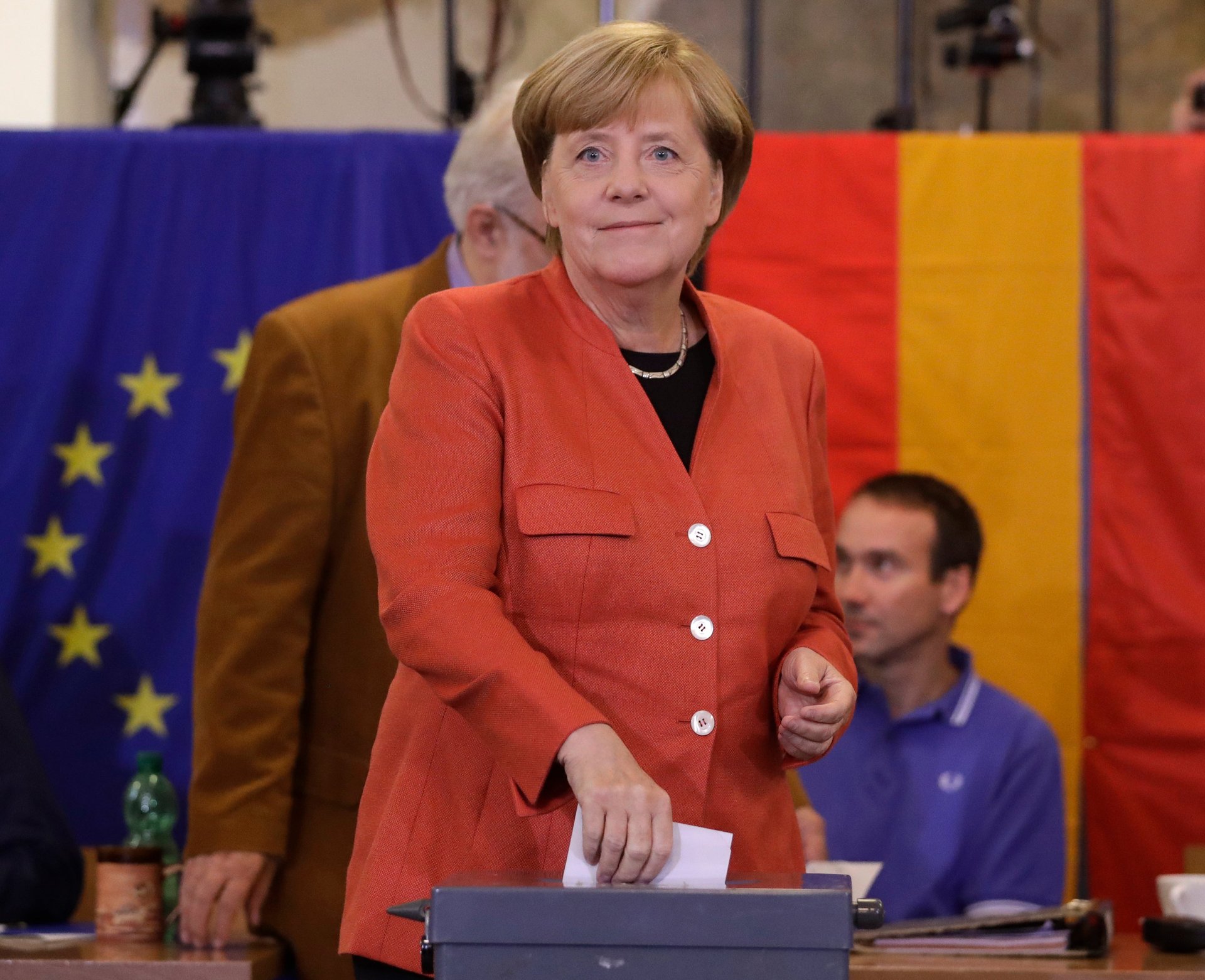Angela Merkel and her party are cruising to victory in the German general election
Germany’s federal election Sunday is officially over. According to exit polls from public broadcaster ARD, Angela Merkel’s Christian Democratic Union (CDU) has won, scooping 32.7 % of the nation’s vote.


Germany’s federal election Sunday is officially over. According to exit polls from public broadcaster ARD, Angela Merkel’s Christian Democratic Union (CDU) has won, scooping 32.7 % of the nation’s vote.
Merkel’s closest rival for the chancellery, Martin Schulz, and his Social Democrats (SPD) had it worst result in decades, winning just 20%.
Exit polls came out at 6pm, and will be followed by an initial projection (“Hochrechnung”) by statisticians. The final results will come in the early hours of Europe’s Monday morning, but these initial counts have historically been accurate.
The Alternative für Deutschland (AfD), which was polling at up to 13% in the days leading up to the election came in third place with 13.5%. That makes them the first radical right party to enter the federal parliament in 56 years. The AfD was set up during the euro crisis in 2013, and pivoted to focus on migration, running a nationalistic anti-refugee, anti-Islam campaign.
The pro-business Free Democratic Party can now put its four years in the wilderness behind it. After crashing out of the Bundestag (German lower house of parliament) in the 2013 federal election, today the FDP nailed 10.5%, comfortably clearing the minimum 5% needed to enter the parliament.
Two other contenders who had been fighting for third place, the Greens and the Die Linke (Left), won 9.5% and 9% respectively.
Were the pre-election polls accurate in Germany? The CDU and its sister party were predicted to pull in between 34% and 37%, and have lost voters. The Social Democrats were limping far behind at around 20%—and that’s what the exit polls say they achieved.
Some 61.5 million people were eligible to vote, and 75% of them cast their ballots today. This was up slightly from the 71.5% voter turnout for the last election. Around 10% of all eligible voters in Germany are of migrant origin. In the wake of the Britain’s decision to leave the EU, almost 3,000 British citizens got German nationality last year. Some of them told The Guardian how thrilled they were to be able to have a voice in the German election.